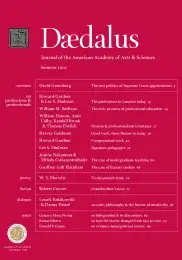Passion & mastery in balance: toward good work in the professions
Whether or not people belong to a true ‘profession’ as sociologists define the term, they usually consider professionalism to be a quality worth striving for. To call someone a pro implies that the person knows what to do and does it well. Professionals don’t act naively, make stupid mistakes, or get easily flustered. Professionals have staying power and can be counted on: they ‘go on with the show’ no matter how they’re feeling. It is this attitude that journalist Alistair Cooke had in mind when he said, “A professional is a person who can do his best at a time when he doesn’t particularly feel like it.”
Professionalism in any field–medicine, law, sports, butchery, baking, or candlestick making–implies dependable work reflecting a solid mastery of occupational knowledge, standards, and methods. Mastery of this sort matters greatly to clients. Who would go into surgery with a doctor who had not acquired professional skill? Or hire a lawyer with an ‘unprofessional’ reputation? Or, for that matter, buy from a butcher who didn’t know a pork chop from a short rib?
Yet the prestige of professionalism, especially during recent times, has been tarnished by the indifferent, self-serving, and sometimes unethical work of some professionals. No doubt the high-pressure demands of today’s professional fields have a lot to do with this. In a world of HMOs, mandated billed-hour quotas, and other bottom-line assessment standards, matters of great importance to the lives of clients–a shady spot on a brain scan, an audit notice from the IRS, a child who can’t learn in school– may become little more than chores in a professional’s daily routine. With a frame of mind that used to be summed up (in a pre-inflation era) as ‘another day, another dollar,’ professionals may find it hard to maintain a sense of pride in their expertise, let alone a mission-driven enthusiasm for their daily work.
. . .
